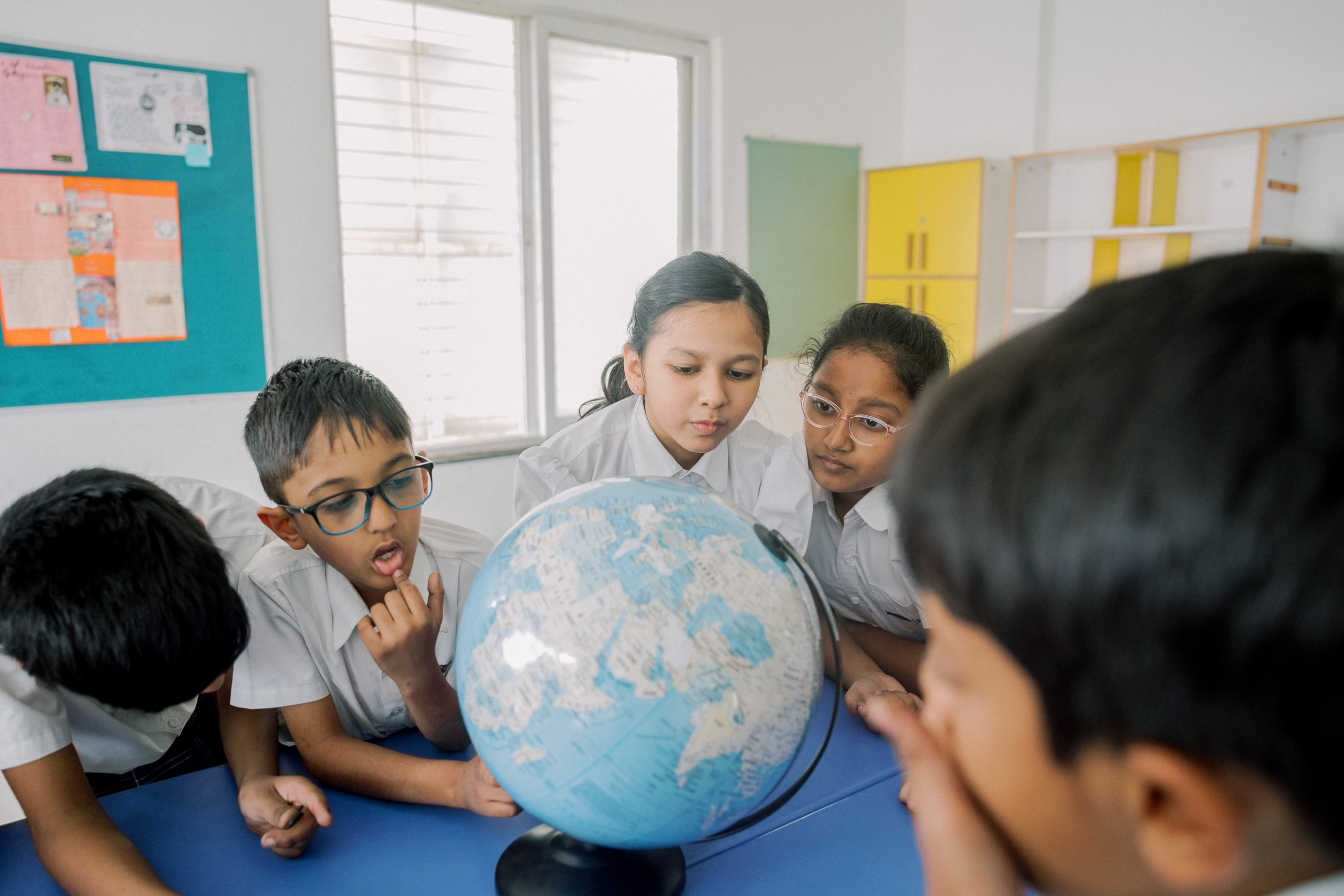Why?
It’s a word most parents hear on repeat from their children, sometimes to the point of exhaustion. Why is the sky blue? Why do birds fly? Why can’t I eat ice cream for breakfast?
But here’s the thing: that tiny, persistent question—“Why?”—is more than just childhood curiosity. It’s the foundation of critical thinking, a skill that is shaping the future of modern education. As the world around us grows more complex, critical thinking is no longer optional; it’s essential.
At Ekya Nava, where we follow the globally respected IGCSE syllabus and IB, critical thinking isn’t just encouraged—it’s embedded into every aspect of learning. Here, we’re not just teaching students what to think; we’re teaching them how to think.

Why Critical Thinking Matters More Than Ever
In today’s fast-paced, information-driven world, knowledge is abundant, but the ability to process, analyse, and apply that knowledge is what truly sets individuals apart. Critical thinking empowers students to:
- Navigate a Sea of Information:
In a world where misinformation is just a click away, critical thinking helps students evaluate sources, question biases, and make informed decisions.
- Solve Real-World Problems:
From climate change to technological advancements, the challenges of today require innovative solutions. Critical thinking equips students to tackle these issues head-on.
- Adapt to Future Careers:
The jobs of tomorrow don’t exist yet. Critical thinking fosters adaptability, ensuring students can thrive in an ever-changing professional landscape.
How Critical Thinking Comes to Life in the IGCSE Syllabus
The IGCSE syllabus is designed to go beyond rote learning and encourage students to think independently. Here’s how it fosters critical thinking:
- Exploration Over Memorisation: Students are encouraged to explore concepts deeply rather than just memorise facts. For example, in science, they conduct experiments and analyse the results to understand principles, rather than just learning definitions.
- Interdisciplinary Learning: Subjects like Global Perspectives challenge students to connect ideas across disciplines, analyse global issues, and propose solutions.
- Inquiry-Based Assessments: IGCSE assessments require students to demonstrate understanding, analyse scenarios, and justify their answers, which encourages higher-order thinking.
The Ekya Nava Approach to Critical Thinking
At Ekya Nava, critical thinking isn’t a buzzword—it’s the foundation of our teaching philosophy. Our approach combines the rigor of the IGCSE syllabus with innovative teaching methods to create an environment where curiosity thrives.
1. Teaching Students to Ask the Right Questions
We encourage students to not just seek answers but to question everything. Why does a certain historical event matter today? What are the ethical implications of a scientific breakthrough? By asking meaningful questions, students learn to think critically about the world around them.
2. Turning Classrooms into Think Tanks
At Ekya Nava, classrooms are dynamic spaces where students debate, collaborate, and challenge each other’s ideas. Whether it’s a group discussion on the environmental impact of technological advances or a debate on ethical business practices, our classrooms are buzzing with intellectual energy.
3. Real-World Problem Solving
Our students don’t just learn concepts; they apply them to solve real-world problems. For instance:
- In math, they might analyze data to propose solutions for traffic congestion in their city.
- In biology, they conduct experiments on water purification methods and present findings.
This hands-on approach ensures that learning is both meaningful and impactful.
From Questions to Solutions: The Quest Program
Critical thinking at Ekya Nava reaches new heights with our Quest Program. This in-house inquiry-based program challenges students to dive deep into topics of their choice, conduct research, and present their findings.
Here’s how the Quest Program fosters critical thinking:
- Hypothesis Building: Students identify a problem or question they’re passionate about.
- Research and Analysis: They gather data, analyze it, and draw conclusions.
- Presenting Solutions: Finally, they present their findings, honing their communication and reasoning skills.
The Quest Program is more than an academic exercise—it’s a platform for students to explore their interests, think creatively, and develop solutions that have real-world applications.v
Critical Thinking Beyond the Classroom
At Ekya Nava, we believe critical thinking isn’t just for academics—it’s a life skill. Here’s how we prepare our students to use this skill in every aspect of their lives:
- Ethical Decision Making: Students learn to assess the consequences of their actions, ensuring they make responsible choices.
- Conflict Resolution: By understanding different perspectives, students develop empathy and the ability to resolve conflicts constructively.
- Leadership and Collaboration: Critical thinking enables students to lead with vision and work effectively with others.
Critical thinking isn’t just about solving problems; it’s about redefining them. It’s about challenging the status quo, asking questions that matter, and creating solutions that make a difference.
At Ekya Nava, we’re not just preparing students for exams; we’re preparing them for life. Through the robust IGCSE syllabus and our commitment to innovation, we’re shaping thinkers, leaders, and changemakers who are ready to take on the world.
